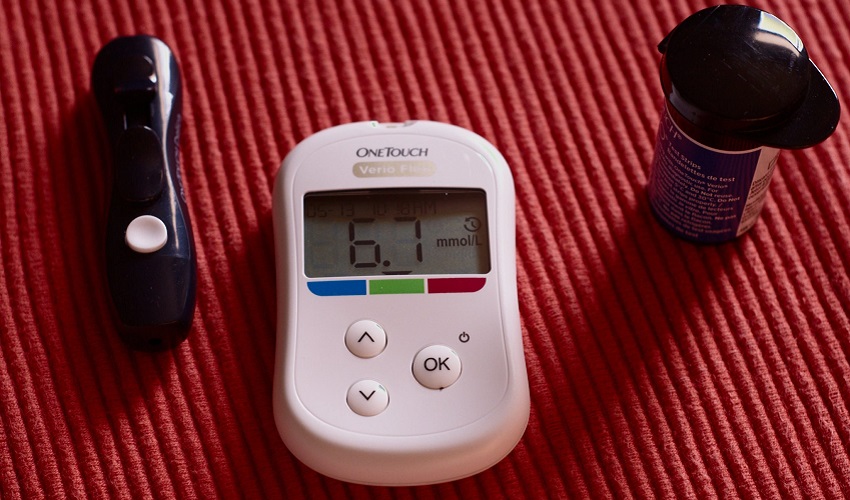Living with diabetes requires careful management to maintain blood sugar levels within a healthy range. Night-time poses unique challenges, as blood glucose imbalances can occur during sleep, leading to nocturnal hypoglycemia or hyperglycemia. This article aims to provide valuable strategies for managing these conditions during the night, ensuring the well-being of individuals with diabetes and offering guidance to their caregivers.
Understanding Nocturnal Hypoglycemia and Hyperglycemia
Definition and Causes
Night-time hypoglycemia refers to low blood sugar levels during sleep, usually below 70 mg/dL (3.9 mmol/L). It can be caused by excessive insulin or diabetes medications, delayed or missed meals, increased physical activity before bed, or the dawn phenomenon. Night-time hyperglycemia, on the other hand, refers to high blood sugar levels during sleep, often above 180 mg/dL (10 mmol/L). It can be caused by insufficient insulin or diabetes medication, overeating before bed, lack of physical activity, or the Somogyi effect.
Prevalence and Risk Factors
Nocturnal hypoglycemia affects a significant portion of individuals with diabetes, especially those on insulin therapy or certain oral medications. Risk factors include irregular eating patterns, excessive alcohol consumption, intense exercise close to bedtime, and certain medical conditions. Night-time hyperglycemia is common among individuals with poorly controlled diabetes, particularly those with type 2 diabetes. Risk factors include inadequate diabetes management, obesity, stress, and certain medications.
Potential Consequences
Unmanaged night-time hypoglycemia can lead to seizures, unconsciousness, or even death if severe. Night-time hyperglycemia can contribute to long-term complications of diabetes, such as cardiovascular disease, neuropathy, and kidney damage. It can also cause excessive thirst, frequent urination, and interrupted sleep patterns.
Strategies for Managing Night-time Hypoglycemia
Regular Monitoring of Blood Sugar Levels
Frequent monitoring of blood glucose levels, including before bedtime, helps identify nocturnal hypoglycemia. Utilize a reliable glucose meter or continuous glucose monitoring (CGM) system to track trends and make informed decisions about treatment adjustments.
Adjusting Medication and Insulin Dosages
Work closely with your healthcare provider to adjust your medication or insulin dosages if recurrent night-time hypoglycemia occurs. Modifying the timing or dosage can help prevent low blood sugar levels during sleep.
Eating a Bedtime Snack
Consuming a balanced snack before bedtime that combines carbohydrates and protein can help stabilize blood sugar levels throughout the night. Examples include a small apple with peanut butter or a handful of almonds with a few whole-grain crackers.
Balancing Physical Activity
Avoid intense exercise close to bedtime, as it can lower blood sugar levels. Engaging in light physical activity earlier in the evening, such as a leisurely walk, can promote better blood sugar control during sleep.
Communicating with Healthcare Providers
Regularly update your healthcare provider about your night-time hypoglycemia experiences. They can provide personalized guidance based on your individual needs and help fine-tune your diabetes management plan.
Strategies for Managing Night-time Hyperglycemia
Regular Monitoring of Blood Sugar Levels
Consistently monitor your blood glucose levels to identify patterns of night-time hyperglycemia. This information will help you and your healthcare provider make necessary adjustments to your diabetes management plan.
Medication and Insulin Adjustments
Consult with your healthcare provider to determine if changes in your diabetes medication or insulin regimen are required. Modifying dosages or timings can help control night-time hyperglycemia more effectively.
Promoting Healthy Lifestyle Habits
Adopt a healthy lifestyle that includes regular physical activity, a balanced diet, and stress management techniques. These habits contribute to overall blood sugar control, including during the night.
Addressing Stress and Emotional Well-being
Stress can affect blood sugar levels, including during sleep. Engage in stress-reducing activities such as meditation, deep breathing exercises, or hobbies that bring joy and relaxation.
Consulting Healthcare Providers
If night-time hyperglycemia persists despite lifestyle modifications, consult with your healthcare provider. They can evaluate your diabetes management plan, consider additional treatment options, or address underlying factors contributing to high blood sugar levels.
Creating a Safe Sleep Environment
Staying Prepared with Emergency Supplies
Keep a readily accessible emergency kit near your bed, including a source of fast-acting carbohydrates such as glucose tablets or juice. Inform your partner or caregiver about its location and instructions for use.
Partner and Caregiver Communication
Educate your partner or caregiver about the signs, symptoms, and appropriate response to night-time hypoglycemia or hyperglycemia. Foster open communication and ensure they understand how to provide assistance when needed.
Utilizing Technology for Monitoring
Consider using continuous glucose monitoring (CGM) systems or alarm-equipped glucose meters to alert you or your caregiver about potential blood sugar imbalances during sleep. These tools can provide valuable information for better diabetes management.
Educating Loved Ones and Caregivers
Offer educational resources to your loved ones and caregivers to enhance their understanding of diabetes, its management, and potential night-time challenges. This knowledge will empower them to provide effective support and care.
The Role of Continuous Glucose Monitoring (CGM)
Advantages of CGM for Night-time Management
CGM systems provide real-time glucose readings, alerting individuals or caregivers of potential hypoglycemia or hyperglycemia episodes. They offer a more comprehensive understanding of blood sugar patterns during sleep and help guide treatment decisions.
Understanding CGM Data and Patterns
Collaborate with your healthcare provider to interpret CGM data and identify trends specific to night-time blood sugar fluctuations. Adjustments to medication, insulin, or lifestyle factors can be made based on these insights.
Collaborating with Healthcare Providers
Work closely with your healthcare provider to establish personalized CGM targets and alarms specific to your night-time needs. Regularly review CGM data together to optimize diabetes management and minimize nocturnal blood sugar imbalances.
Educating and Involving Caregivers
Importance of Caregiver Knowledge and Support
Caregivers play a crucial role in managing diabetes, especially during the night. Educating them about diabetes management, emergency procedures, and communication strategies ensures their ability to provide effective support.
Building a Collaborative Care Plan
Involve caregivers in developing a care plan that addresses night-time management strategies. This includes understanding medication dosages, recognizing symptoms, and being prepared to respond appropriately to blood sugar imbalances.
Enhancing Caregiver Confidence and Skills
Offer training sessions or educational materials to enhance caregiver confidence and skills in managing night-time hypoglycemia or hyperglycemia. This empowers them to take an active role in diabetes care and support the individual effectively.
Support Networks and Resources
Encourage caregivers to join support groups or online communities where they can connect with others facing similar challenges. These networks provide valuable emotional support, practical tips, and access to educational resources.
Promoting Overall Well-being
Regular Exercise and Physical Activity
Engaging in regular physical activity helps improve insulin sensitivity and blood sugar control. Aim for at least 150 minutes of moderate-intensity exercise per week and incorporate activities that you enjoy into your routine.
Healthy Diet and Meal Planning
Follow a balanced diet that includes a variety of nutrient-dense foods. Focus on portion control, fiber-rich carbohydrates, lean proteins, and healthy fats. Consult a registered dietitian for personalized meal planning guidance.
Stress Management Techniques
Practice stress-reducing techniques such as meditation, deep breathing exercises, or engaging in hobbies that promote relaxation. Chronic stress can affect blood sugar levels, so prioritizing stress management is essential.
Quality Sleep and Sleep Hygiene
Establish a regular sleep routine and create a sleep-friendly environment. Aim for 7-9 hours of quality sleep each night. Implementing good sleep hygiene practices, such as avoiding caffeine and electronic devices before bed, can promote better sleep quality.
Managing night-time hypoglycemia or hyperglycemia is crucial for individuals with diabetes to ensure their well-being during sleep. By implementing the strategies discussed in this article, such as regular blood sugar monitoring, medication adjustments, healthy lifestyle habits, creating a safe sleep environment, involving caregivers, and utilizing technology like CGM, individuals with diabetes can improve their night-time blood sugar control and overall diabetes management. Remember to collaborate closely with healthcare providers and seek their guidance to tailor these strategies to your specific needs. Empowerment, education, and proactive care are the key to effectively managing night-time blood sugar imbalances and promoting a healthier life with diabetes.




